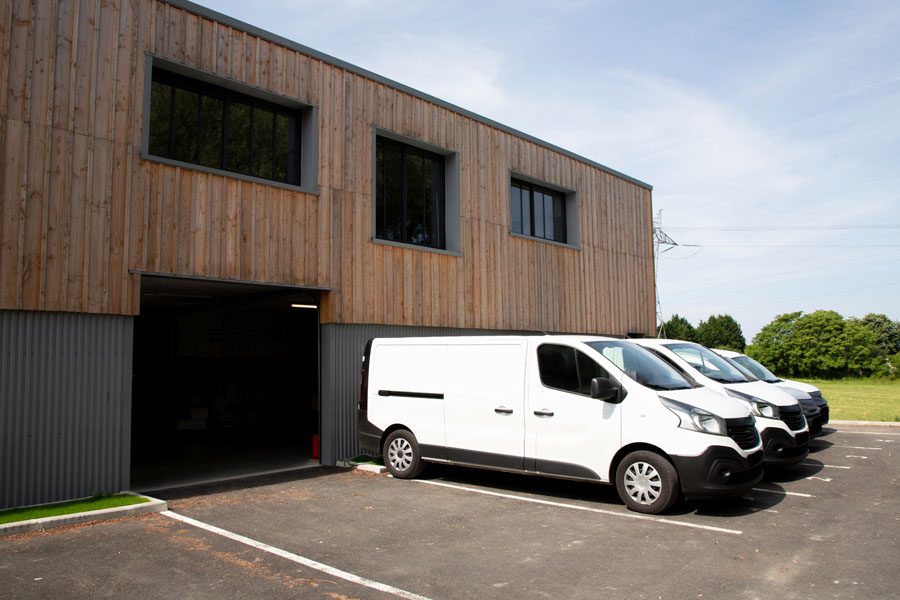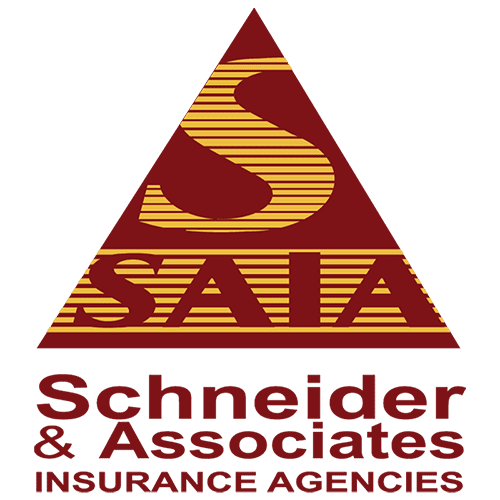
As a small business owner, understanding your small business liability insurance cost is essential for safeguarding your investment and ensuring the financial stability of your enterprise. With various factors influencing the cost of liability insurance, it’s crucial to have a comprehensive understanding of how these costs are determined and how you can reduce them. In this blog post, we’ll walk you through a comprehensive guide that will help you make informed decisions about your small business liability insurance cost.
Key Takeaways
- Small business liability insurance costs are affected by factors such as industry, location, coverage limits and claims history.
- Bundling policies with a Business Owner’s Policy (BOP), comparing quotes from different providers and maintaining a good claims record can help reduce the cost of small business liability insurance.
- It is important to assess your business risks, consult an agent or broker and choose the right policy for your individual needs in order to ensure adequate protection for your company.
Breaking Down Small Business Liability Insurance Costs
Complexities often surround the sphere of small business liability insurance. Grasping the factors that sway the cost of insurance allows you to judiciously choose the coverage necessary for safeguarding your business. Some of the elements that can affect your business insurance costs include:
- Your location
- Industry
- The coverages you select
- Any endorsements you add
- Your profession
- The number of employees
- Desired liability coverage
- Past claims
These factors can play a significant role in determining your insurance cost.
Certain types of small business insurance, including commercial property insurance, employee health insurance, general and professional liability insurance, workers’ compensation insurance, and business interruption insurance, might qualify for tax deductions. To reduce your small business liability insurance costs, consider bundling policies with a Business Owner’s Policy (BOP), comparing quotes from various insurance providers, and maintaining an exemplary claims history.
General Liability Insurance Cost Factors
The cost of general liability insurance can be influenced by several factors, including your industry, business location, and claims history. Your industry plays a significant role in determining the cost of insurance, as certain industries may face higher risks or a greater probability of malpractice lawsuits, leading to higher premiums. Your business location can also impact the cost of insurance, as businesses in areas with high crime rates or substantial foot traffic may face increased premiums for coverage against theft or customer accidents.
Policy limits and credit scores can also affect the cost of general liability insurance. Higher policy limits typically result in increased insurance costs, while a high credit score can lead to reduced insurance rates. Comprehending these factors and their impact on your general liability insurance costs enables you to choose the coverage and policy limits that best suit your business judiciously.
Professional Liability Insurance Cost Factors
Professional liability insurance costs can be influenced by several factors, including:
- Type of business
- Location
- Coverage limits
- Deductible amount
The coverage limits you select for your professional liability insurance will have a direct impact on the cost of your insurance, with higher coverage limits generally resulting in higher premiums. The deductible amount also plays a role in determining the cost of your professional liability insurance, as higher deductibles can lead to lower premium costs, while lower deductibles may result in higher costs.
The risk level of your business is another factor that can influence the cost of professional liability insurance. Insurance companies may impose higher premiums for industries or businesses with higher risk or a history of claims, while lower-risk industries or businesses with no claims history may be offered lower insurance rates. Taking these factors into account allows you to comprehend the cost of professional liability insurance better and select the coverage that fits your business’s specific needs.
Commercial Property Insurance Cost Factors

- Your business location
- The ownership status of your space
- The size of your space
- The property value
The average small business insurance cost of commercial property insurance for small businesses can range from $57 per month to $800 per year, depending on factors like coverage limits and the size of the business. Higher property values generally lead to higher insurance premiums.
Comprehending the factors that sway commercial property insurance costs allows you to judiciously choose the coverage that best fits your business needs. Consider the value of your business property, its location, and any potential risks when choosing the appropriate commercial property insurance coverage for your small business.
Types of Small Business Liability Insurance Policies
There are various types of small business liability insurance policies available, each designed to protect your business from specific risks and liabilities. These policies include:
- General liability insurance, which covers bodily injury, property damage, and copyright infringement claims
- Professional liability insurance, which safeguards businesses that provide advice or services
- Workers’ compensation insurance, which offers financial coverage to employees who suffer injuries or contract illnesses while in the course of their employment.
Selecting the appropriate type of liability insurance is vital to guarantee your small business’s financial stability and continuous success. Understanding the different types of liability insurance policies and their role in protecting your business enables you to judiciously choose the coverage that best fits your needs and budget.
General Liability Insurance
General liability insurance, also known as general liability insurance coverage, is designed to protect your business from legal and settlement costs if a third party initiates legal action against you for bodily injury, property damage, or copyright infringement. The cost of general liability insurance varies based on factors such as your industry, location, and claims history.
For most small businesses, general liability insurance is a critical component of their insurance portfolio. It offers protection against unforeseen incidents and helps maintain the financial health of your business. While selecting general liability insurance, considering the unique risks your business faces and choosing a policy with coverage limits that sufficiently address those risks is vital.
Professional Liability Insurance
Professional liability insurance, also known as errors and omissions insurance, protects businesses that provide advice or services from claims of:
- negligence
- misrepresentation
- inaccurate advice
- professional negligence
- errors and omissions
This type of insurance is particularly important for businesses in industries such as consulting, financial services, and healthcare, where the potential for costly claims is high. Business insurance companies play a crucial role in providing coverage to these industries.
The cost of professional liability insurance is influenced by factors such as industry type and coverage limits. In selecting the appropriate professional liability insurance policy for your business, consider the specific risks tied to your industry and the potential financial impact of a claim. Select a policy with coverage limits that reflect the level of risk your business faces, and consult with an insurance agent or broker to help you navigate the insurance market and find the best policy for your needs.
Workers’ Compensation Insurance
Workers’ compensation insurance is a form of insurance that provides financial coverage to employees who suffer injuries or contract illnesses while in the course of their employment. This type of insurance is mandated by law in the majority of states and is essential for protecting both your business and your employees.
The cost of workers’ compensation insurance is calculated based on factors such as your business’s total payroll, classification codes, and experience modification rates. Assessing your workers’ compensation insurance needs and choosing a policy that provides the appropriate level of coverage is vital to ensure your business is adequately covered. Consult an insurance agent or broker to help you find the best workers’ compensation insurance policy for your business.
How to Save Money on Small Business Liability Insurance
You can lessen the cost of your small business liability insurance by implementing various strategies. Bundling policies with a Business Owner’s Policy (BOP) can help you save money on insurance premiums, as it combines general liability coverage, commercial property insurance, and business interruption coverage into one package at a discounted price.
Comparing quotes from different insurance providers is another effective way to save money on small business liability insurance. It helps you find the best coverage and pricing tailored to your business needs.
Finally, maintaining a good claims history can lower insurance premiums and reduce the likelihood of future claims, as insurance providers view businesses with a clean claims history as lower risk.
Bundle Policies with a Business Owner’s Policy (BOP)
A Business Owner’s Policy (BOP) is an insurance policy that combines business property and business income insurance coverage, typically at a lower cost than purchasing the coverages separately. By bundling your small business liability insurance policies with a BOP, you can save money on insurance premiums and ensure that your business is adequately protected from various risks.
Compare Quotes from Multiple Insurance Providers
Comparing quotes from multiple insurance providers allows you to:
- Find the best coverage and pricing for your specific business needs
- Research and evaluate different insurance providers and policies
- Make an informed decision about the coverage that best suits your business
Some reliable websites for comparing small business liability insurance quotes include CommercialInsurance.net, Insureon, NetQuote, Progressive, BizInsure, Compare the Market, and The Hartford.
Maintain a Good Claims History
Maintaining a good claims history is essential for reducing the cost of your small business liability insurance. Insurance providers perceive businesses with a clean claims history as less risky, leading to lower insurance premiums.
By implementing risk management practices and promptly addressing potential risks, you can maintain a good claims history and reduce the likelihood of future claims, ultimately saving money on your insurance premiums.
Legal Requirements and Recommendations for Small Business Liability Insurance
It’s vital to understand the legal requirements and recommendations for small business liability insurance to ensure your business is adequately protected and law-abiding. Different types of insurance may be mandated for businesses, such as:
- Workers’ compensation insurance
- Commercial auto insurance
- Professional liability insurance for certain legal and medical professionals in specific states.
Small business owners must stay aware of the state and local regulations and industry-specific insurance needs applicable to their business. By adhering to these requirements and recommendations, you can protect your business from potential financial risks and ensure that you have the appropriate liability insurance coverage in place.
State and Local Regulations

- Building codes
- Zoning laws
- Labor laws
- Environmental regulations
- Food safety regulations
It is essential for small business owners to be aware of and adhere to these regulations to ensure they possess the suitable liability insurance coverage.
The specific requirements for liability insurance vary by state and industry. For example, in California, small businesses are required to have workers’ compensation insurance and commercial auto insurance, while general contractors must obtain a general liability policy with a minimum of $1 million in coverage and a $15,000 surety bond. It is crucial to consult your state’s website or local government office to ascertain the specific requirements for your business.
Industry-Specific Insurance Needs
Each industry has its unique risks and insurance needs, which should be taken into consideration when selecting liability insurance for your small business. For example, businesses in the construction industry typically require general liability insurance, workers’ compensation insurance, and commercial auto insurance, among other types of coverage. Likewise, businesses in the food and beverage industry may need product liability insurance, spoilage insurance, and equipment breakdown insurance, among others.
By identifying and addressing the specific insurance needs of your industry, you can ensure that your business is adequately protected from potential risks. Consult with an insurance agent or broker to help you navigate the insurance market and find the coverage that best meets the unique needs of your business.
How to Choose the Right Liability Insurance Policy for Your Small Business
Choosing the appropriate liability insurance policy for your small business is a vital step towards ensuring your enterprise’s financial stability and safety. To make an informed decision about the coverage that best meets your needs, consider factors such as:
- The nature of your business
- Its size and location
- Financial resources
- Risk management practices
Consulting with an insurance agent or broker can assist you in navigating the insurance market to find the best policy tailored to your business needs. By assessing your business risks, evaluating different insurance providers and policies, and seeking the counsel of a knowledgeable insurance professional, you can ensure that you have the appropriate liability insurance coverage in place to protect your business.
Assess Your Business Risks
Assessing your business risks is an essential step in determining the appropriate coverage and policy limits for your small business liability insurance. To effectively analyze your business risks, consider factors such as:
- The nature of your business
- Its size and location
- Financial resources
- Risk management practices
- Claims history
Establishing a clear definition of your business and its unique risk profile is crucial in identifying potential risks and determining the appropriate level of coverage. Consult a certified advisor to discuss insurance requirements and ensure that you have the necessary coverage in place to protect your business from unforeseen accidents and disasters.
Consult with an Insurance Agent or Broker
Consulting with an insurance agent or broker can help you navigate the insurance market and find the best policy for your specific business needs. An insurance agent or broker serves as the representative of the insured, assisting them in selecting the appropriate coverage by researching and evaluating different insurance providers and policies.
By working with an insurance agent or broker, you can gain valuable insight into the coverage options, policy provisions, and potential exemptions or limitations of various policies. They can also offer counsel and advice throughout the process, aiding you in understanding the coverage alternatives and ensuring that you select a policy that meets your business needs and budget.
Summary
In conclusion, understanding your small business liability insurance costs and selecting the right policy is crucial to protecting your investment and ensuring the financial stability of your enterprise. By considering factors such as the nature of your business, its size and location, financial resources, risk management practices, and industry-specific insurance needs, as well as consulting with an insurance agent or broker, you can make informed decisions about the coverage that best meets your needs and budget. Protect your business and secure its future by investing in the right liability insurance coverage today.
Frequently Asked Questions
How much liability coverage does the average small business need?
For small businesses, the most popular option is to purchase general liability insurance with limits of $1 million per occurrence and a $2 million aggregate. This will provide protection in case of a single claim up to $1 million while the policy is active.
How much is a million dollar insurance policy for a business?
A typical $1 million business insurance policy costs around $69 per month, or $824 per year. However, the price of a policy can vary depending on factors like payroll size and coverage type.
What factors influence the cost of small business liability insurance?
Location, industry, coverages selected, endorsements added, and past claims can all influence the cost of small business liability insurance.
What is a Business Owner’s Policy (BOP)?
A Business Owner’s Policy (BOP) combines business property and income insurance into a single policy, offering cost savings compared to buying the coverage separately.
How can I save money on small business liability insurance?
Save money on small business liability insurance by bundling policies with a Business Owner’s Policy (BOP), comparing quotes, and maintaining a good claims history.

